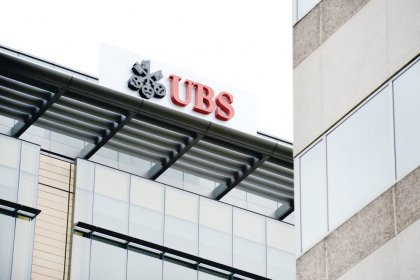The cost reduction is a critical issue for the successful future of the financial services industry. Sergio Ermotti, UBS Group CEO, believes that blockchain has the potential to change the situation, but expects it to take up to ten years.
Switzerland is home for one of the most reliable banking systems in the world. Maintaining high standard of service requires constant development and implementation of cutting-edge technologies. UBS Group, a Swiss financial services giant, is making its first steps towards the blockchain future but the company is definitely far from becoming a crypto enthusiast. Nevertheless, its CEO Sergio Ermotti may have a different view of the situation.
The recent interview of Ermotti with CNBC has been heartily welcomed by the crypto community. The CEO of one of the most influential financial services companies in Switzerland has publicly admitted the fact that the whole industry faces challenging times. “The only way you can stay relevant is not only by being strong in terms of capital, in terms of products, the quality of the people you have, advice you give to clients. You need also to be able to price it correctly,” he said.
The wide usage of blockchain seems to be an increasingly plausible scenario for the financial services industry. The potential of this technology can play a key role in the renewal of this sphere. According to Ermotti, “it’s almost a must. The freeing up of resources to become more efficient will come through technology and blockchain is a great way to allow us to … reduce costs.”
Even though the UBS Group CEO is demonstrating the positive attitude towards the blockchain technology, it does not mean that we are about to face significant changes tomorrow. Ermotti was rather realistic in his evaluation of the future of blockchain. He said that the blockchain-based cost transformation would take from five to ten years. That may not be the period the crypto community expects, but that is not too long for such a stable and bureaucratized sphere as financial services.
The position of the CEO of the company coincides with some of the UBS Group’s projects. This company shuns risks and avoids drastic changes. Instead of it, the Swiss giant demonstrates balanced approach and takes well-considered steps. One of the most discussed blockchain projects of UBS Group is its collaboration with IBM and four other leading banking companies on creating a new global blockchain-based trade platform.
This project called Batavia has attracted lots of interest of the public. The initiators of the project are UBS Group and IBM. Batavia is built on the IBM Blockchain Platform while UBS group established the financial background of the platform. Later some big names joined the project: Bank of Montreal, CaixaBank, Commerzbank and Erste Group. CoinSpeaker gave a detailed overview of the project when these companies joined the collaboration.
The recent interview of Ermotti is a great example of a balanced view of the blockchain technology. That is not a solution that can dominate the industry in the near future – but there is no point in denying the fact that blockchain the most likely candidate for revolutionizing the financial services in the next 10 years.
next